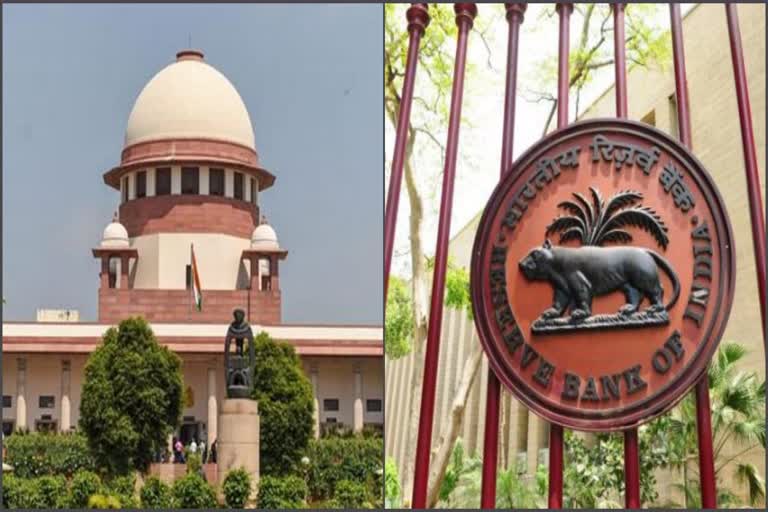New Delhi: The Reserve Bank of India(RBI) has informed the Supreme Court that it cannot extend the loan moratorium period beyond August 31, 2020, as it was a part of the immediate regulatory response to deal with the pandemic and extending it will have an adverse impact on the economy.
It has said that it will entail significant costs to the lenders, impact the behaviour of borrowers, vitiate credit discipline and small borrowers might end up bearing the burnt as their access to formal lending channels is critically dependent on credit culture.
"Further mere continuation of the temporary moratorium would not even be in the interest of borrowers. It may not be sufficient in addressing deeper cash flow problems of the borrowers and in fact exacerbate the repayment pressures for the borrowers. Therefore, a more durable solution was needed to rebalance the debt burden of viable borrowers, both businesses as well as individuals, relative to their cash flow generation abilities," added the affidavit.
The affidavit has come in response to a plea which sought a waiver of interest on interest during the loan moratorium period, moratorium be provided to all accounts instead of being at the discretion of lenders and extension of the moratorium period. For waiver of interest on interest, the government has already filed an affidavit agreeing to do so and bear the financial burden for it. For the rest of the prayers, additional affidavits were asked by the top court in its last hearing.
Also read: Thinking of getting your loan restructured? Here's what you should know
In case of the moratorium to be provided to all accounts, the RBI has submitted that the lending institutions are best placed to assess the cases, form their policies and therefore discretion has been given to them to decide the borrowers who can avail the moratorium benefits.
As per the Resolution Framework and Kamath committee( expert committee for the recommendation in the matter), accounts overdue for less than 30 days are only eligible for resolution under the framework. The petitioners had objected to it. RBI, however, made it clear in the affidavit that it was a conscious policy to "restrict the dispensation to only those accounts which were regular in making payments before the onset of the pandemic and which got impacted on account of COVID 19".
Responding to the argument that COVID 19 has impacted accounts overdue beyond 30 days, RBI has said that it is a "classic fallacy" which presumes that accounts paying on time can be equated with those which are not paying.
On the issue of sector-specific relief, the central bank has submitted that Resolution Framework has given complete discretion to lending institutions and borrowers to arrive at resolution plans which are tailored to specific requirements.
Real estate had also raised issues in the court during the hearing to which RBI has said that they were stressed even before the pandemic and projects affected due to corona can be restructured under existing framework.
Also read: SC asks Centre, RBI to file Kamath panel suggestions, their decisions on loan moratorium
"This extent framework allows for the extension of timeline for competition of the projects by 2 years in case of non-infra projects, including real estate projects and by 4 years for infrastructure projects without downgrading to NPA. The Government has also taken measures to address some of the sectoral problems, including creation of a special window for completion of affordable and mid income housing(SWAMH Investment fund) to provide priority to debt financing for the completion of stalled housing projects," submitted the RBI.
It has also submitted an additional affidavit on Kamath Committee report which says that lending institutions are required to consider 5 key ratios- Total Outside liabilities/Adjusted Tangible Net worth, Current Ratio, Debt Service Coverage Ratio, Average Debt Service Coverage Ratio while preparing the financial assumptions in respect of resolution plans under the Resolution Framework.
The top court had stayed the classification of any account as NPA till its orders to which RBI has prayed to lift immediately else it will have huge ramifications for the banking system.



